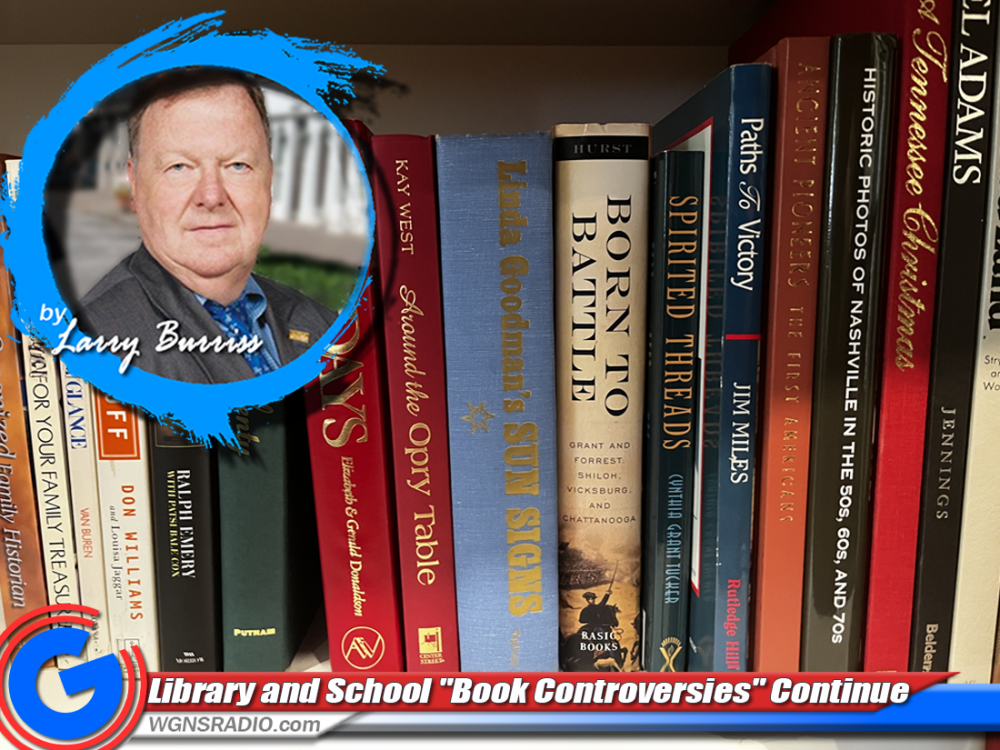Commentary - What's in a book? Do you approve of someone else saying "you can't read that"? School of Journalism & Strategic Media professor at MTSU, Dr. Larry Burriss, Ph.D., J.D., shares his editorial thoughts... That's all about the Kanawha Book Controversy, a violent school struggle that took place in West Virginia back in 1974. Hear more from Dr. Burriss HERE.
Here are Dr. Burriss thoughts: By this time almost all schools are back in session, teachers are in front of their classes, and students are reading their textbooks. Well, maybe.
In May 1974, parents began to complain about many of the new textbooks to be used throughout West Virginia in grades kindergarten through 12.
Concerned parents collected more than 12-thousand signatures opposed to the books on the grounds of immorality and indecency. In June, much to the chagrin of conservative groups, the school board, which oversaw more than 120 schools in the county, approved the books by a vote of 3-2.
Soon there were calls for a boycott of all public schools in the county, and some 9,000 out of 45,000 elementary school students stayed away on opening day, September 3rd. In addition, 3,500 miners staged a wildcat sympathy strike, as bus drivers and truckers in the area joined the boycott.
Unfortunately, protests quickly turned to direct actions, and bombs were soon found at an elementary school and a school board building. A different elementary school was bombed and school buses were attacked with shotguns. Eighteen people were arrested for blocking school bus garages. Rocks were thrown at the homes of children who did not participate in the boycott. Snipers shot at two state police vehicles escorting school buses. There were physical altercations at subsequent board meetings, and one person was shot.
On September 12th, schools we closed for four days, but sporadic violence continued through October and November, exacerbated by the appearance of the John Birch Society and the Ku Klux Klan at the state capital, Charleston.
As if to illustrate how confusing the situation in the Kanawha Valley was, a group of students staged a walkout to show opposition to the boycott.
So let me see if I have this right: protestors were using violence to show opposition to violence in books, and students walked out of class to show they were opposed to other students walking out of class.
Fortunately, history shows continuing discussion, but much less disruptive action regarding school books. Talking and listening. Just as it should be. - I’m Larry Burriss.
About Dr. Burriss - Larry Burriss, professor of journalism, teaches introductory and media law courses. At the graduate level he teaches quantitative research methods and media law. He holds degrees from The Ohio State University (B.A. in broadcast journalism, M.A. in journalism), the University of Oklahoma (M.A. in human relations), Ohio University (Ph.D. in journalism) and Concord Law School (J.D.). He has worked in print and broadcast news and public relations, and has published extensively in both academic and popular publications. He has won first place in the Tennessee Associated Press Radio Contest nine times. Dr. Burriss' publications and presentations include studies of presidential press conferences, NASA photography, radio news, legal issues related to adolescent use of social networking sites, legal research, and Middle Earth.
Dr. Burriss has served as director of the School of Journalism, dean of the College of Mass Communication and president of the MTSU Faculty Senate. He was appointed by Gov. Phil Bredesen to serve on the Tennessee Board of Regents. He was a lieutenant colonel in the U.S. Air Force and served on active duty in Mali, Somalia, Bosnia, Central America, Europe and the Pentagon.





